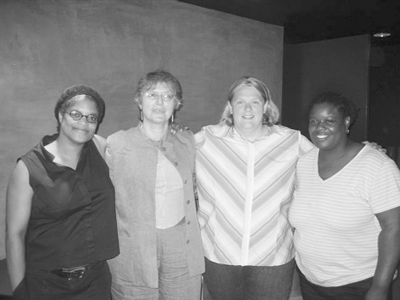A film festival’s founder seeks to make inroads in a male-dominated field
The third annual Reel Venus Film Festival, a three-day independent film screening dedicated to showcasing a diverse range of short films directed by women, was held July 20-22 in the Leonard Nimoy Thalia Theater at Symphony Space, located on Manhattan’s Upper West Side. The festival featured a total of 45 short films chosen by Reel Venus founder and organizer, Melissa Fowler, for their “compelling, up-to-date subject matter, originality in storytelling, overall production quality and level of sophistication in use of media and technology.”
Many of the films selected had been honored with awards from other prestigious festivals, including the Sundance Film Festival, the Tribeca Film Festival and Rotterdam International Film Festival.
Fowler single-handedly launched the Reel Venus Film Festival in 2003 in response to the lack of representation of women filmmakers in the commercial film industry and the independent festival circuit. “If you look at the roster at a film festival, even a shorts program, it’s always eight guys, two girls,” says Fowler. Indeed, according to a study done by Dr. Martha M. Lauzen, a Professor at San Diego State University’s School of Communication, women comprised only 5 percent of film directors in 2004, representing a decline of 6 percentage points from 2000.
In an effort to close this gap, Fowler has dedicated herself to promoting women leaders in the film industry by providing a space for women filmmakers to have their work seen and heard, as well as to network with other industry professionals.
Karen Sanders’ film, “Not Weird in the First Place,” which premiered for the first time at Reel Venus on July 22, is a daring, 13-minute experimental documentary which tells the story of an HIV-positive indigenous South African woman’s struggle with her sexual identity, delivered in a first-person narrative format. Sanders suggests that women filmmakers are not taken seriously because of stereotypes which promote the misconception that women tend to make films about the same few subjects. “People have presumptions about women’s films, they don’t think there will be any diversity,” said Sanders.
In order to disprove such stereotypes, Fowler specifically seeks to include films which cover a broad range of topics. “It’s not so much that they have to be women’s films or about women,” says Fowler. “I just want to see women be recognized as makers. They can make [films about] whatever they want.”
This year’s festival included film and video shorts on subjects as various as competitive cheerleading, a waiting-room experience, the intricacies of male adolescence and an introduction to little-known Harlem Renaissance poet, Nella Larsen.
Other queer films presented at Reel Venus Film Festival included “Desperate for Love,” a 22-minute narrative account of one lesbian woman of color’s convoluted quest for love, directed by emerging filmmaker, Angel Brown, and “Saying I Do,” a 34-minute documentary directed by Jennifer Uihlein and executive produced by Carol Stanger. “Saying I Do” examines the issue of gay marriage from the perspective of two families, including Hilary and Julie Goodridge and their daughter, who were the lead plaintiffs in the landmark Massachusetts’ high court decision legalizing gay marriage in that state, Goodridge et al. v. Massachusetts Department of Public Health.
For more information on the Reel Venus Film Festival, visit reelvenus.com.
gaycitynews.com



































